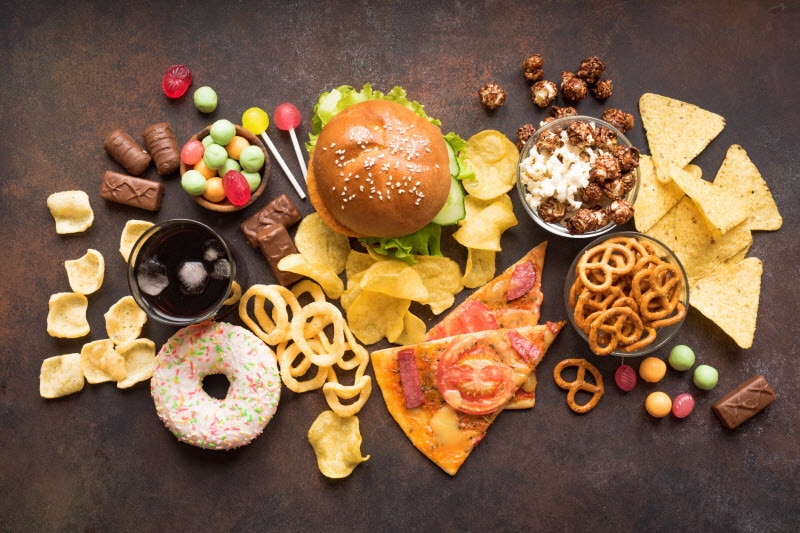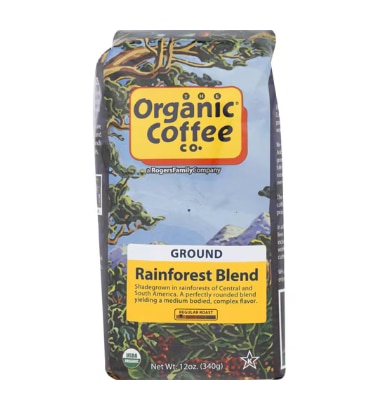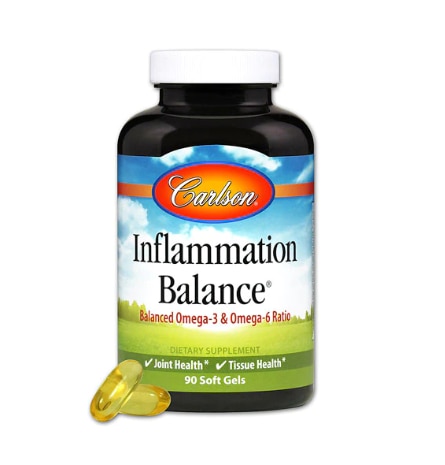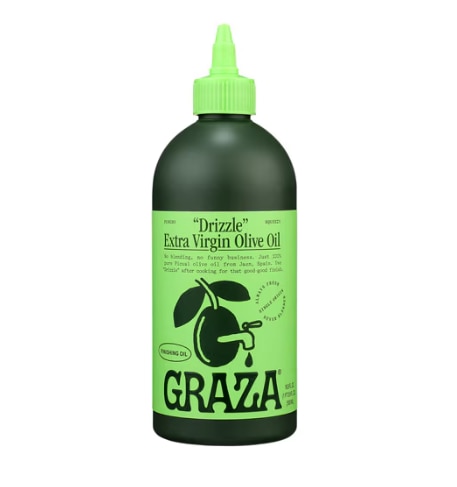You may be one of almost 6 in 10 Americans whose diets trigger chronic inflammation. If you’re among these people, a pro-inflammation diet may be a recipe for fueling health problems like Alzheimer’s disease, arthritis, cancer, depression, diabetes, heart disease and obesity.
A study published in 2024 in the journal Public Health Nutrition found that 57% of U.S. adults consume a pro-inflammatory diet. The issue is especially troublesome among Black, male, lower-income, less-educated and young Americans. To come up with that figure, researchers relied on a dietary inflammatory index to explore the diets of more than 34,500 adults included in the 2005-2018 National Health and Nutrition Examination Survey.
Research scientist Rachel Meadows, lead author of the study, says in an Ohio State University news release that “inflammation is an important element to consider and the overall balance of diet is most important. Even if you’re eating enough fruits or vegetables, if you’re having too much alcohol or red meat, then your overall diet can still be pro-inflammatory.”
What is chronic inflammation?
Inflammation can serve as the body’s first line of defense against threats like damaged cells and infected microorganisms, according to a study published in 2024 in the journal Cells. But while acute inflammation “is crucial for healing and recovery,” the study says chronic inflammation can lead to an array of harmful health conditions.
Chronic inflammation is a “slow, long-term inflammation lasting several months to years. Generally, the extent and effects of chronic inflammation vary with the cause … and the ability of the body to repair and overcome the damage,” according to a study published in 2023 by the journal StatPearls.
The StatPearls study identifies several symptoms of chronic inflammation, including:
- Body pain
- Chronic fatigue
- Insomnia
- Anxiety, depression and mood disorders
- Gastrointestinal complications like constipation, diarrhea and acid reflux
- Weight gain or weight loss
- Frequent infections
Worse yet, chronic inflammation can contribute to conditions such as cancer, diabetes, heart disease and obesity.
Foods that cause inflammation
According to Harvard Health Publishing and the Arthritis Foundation, foods you probably should avoid to reduce inflammation include:
- Pastries
- Cookies
- Doughnuts
- Crackers
- White bread
- White rice
- Instant mashed potatoes
- Many breakfast cereals
- Processed snack foods
- Frozen breakfast foods
- Fried foods
- Sugar-sweetened beverages
- Aspartame, an artificial sweetener sold under brand names such as Equal, Nutrasweet and Sugar Twin
- Red meat such as hamburgers and steaks
- Processed meats like hot dogs and sausage
- Margarine
- Shortening
- Lard
- Pizza
- Cheese
- Full-fat dairy products
- Mayonnaise
- Corn, safflower, sunflower, grapeseed, soy, peanut and vegetable oils
- Many salad dressings
- Foods containing mono-sodium glutamate (MSG)
“Moving toward a diet with less inflammation could have a positive impact on a number of chronic conditions, including diabetes, cardiovascular disease and even depression and other mental health conditions,” says Meadows.
Foods to reduce inflammation
Just as a lot of foods can trigger inflammation, many other foods can combat it. According to Harvard Health Publishing, Johns Hopkins Medicine and the Mayo Clinic Health System, foods you might consider adding to an anti-inflammatory diet include:
- Tomatoes
- Olive oil
- Green leafy vegetables such as spinach and kale
- Nuts like almonds and walnuts
- Fatty fish such as mackerel, salmon, sardines and tuna
- Fruits like blueberries, blackberries, cherries, Concord grapes, oranges, plums and strawberries
- Coffee
- Herbal and green tea
- Dark chocolate
- Onions
- Spices and herbs such as black ginger, cardamom, cinnamon, garlic, pepper, rosemary and turmeric
- Whole grains like brown rice, buckwheat, millet, oats, quinoa, rye and wheat
- Dried beans
- Lentils
Adopting the Mediterranean diet may be one way to gain several anti-inflammatory benefits all at once, according to Mayo. This diet is typically chock-full of anti-inflammatory fruits, vegetables, whole grains, olive oil and plant-based proteins.
“It can seem challenging at first to eat for lower inflammation with so many inflammatory foods commercially available, but over time, small changes can turn into lasting habits,” Johns Hopkins Medicine advises. “While no one food reduces inflammation, building a healthy, holistic dietary pattern can help lower your risk of inflammatory disease and transform your health.”




